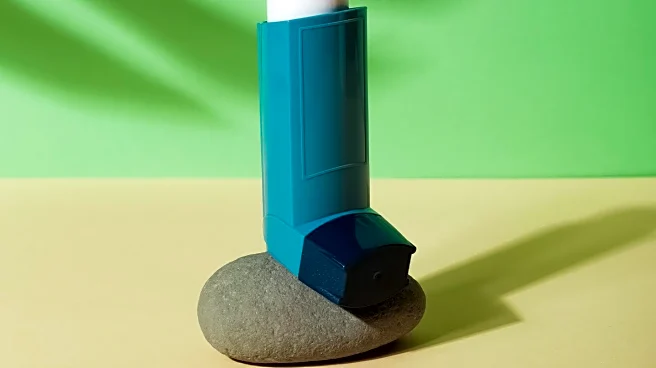What's Happening?
A recent international study led by researchers at the Australian National University and King's College London has revealed that inhaled heparin, a widely available and affordable drug, is effective in treating seriously ill COVID-19 patients. The study involved nearly 500 patients hospitalized with COVID-19 across six countries. Findings showed that patients who inhaled heparin were half as likely to require ventilation and had a significantly lower risk of dying compared to those receiving standard care. Traditionally used as an anticoagulant, heparin was tested in an inhaled form targeting the lungs directly, showcasing its anti-inflammatory and pan-antiviral properties. The research suggests that inhaled heparin could also be beneficial in treating other serious respiratory infections such as pneumonia.
Why It's Important?
The discovery of inhaled heparin's effectiveness against severe COVID-19 cases is significant as it offers a potentially life-saving treatment option that is both affordable and accessible. This development is crucial for global health, especially in low-income countries where access to expensive treatments is limited. The drug's unique combination of antiviral, anti-inflammatory, and anticoagulant properties makes it a versatile tool in combating respiratory infections. As the world continues to face the threat of pandemics, having an effective treatment like inhaled heparin could reduce mortality rates and alleviate the burden on healthcare systems.
What's Next?
Further development and trials are necessary before inhaled heparin can be routinely adopted in clinical settings. Researchers are planning another trial in Europe to confirm its effectiveness against other common respiratory infections such as influenza and RSV. Additionally, an improved formulation of heparin specifically designed for inhalation is being developed. These steps are essential to ensure the drug's efficacy and safety for widespread use.
Beyond the Headlines
The study highlights the potential for repurposing existing drugs to address new health challenges, emphasizing the importance of innovative approaches in medical research. The use of inhaled heparin could also prompt discussions on healthcare accessibility and the need for affordable treatments in combating global health crises.









